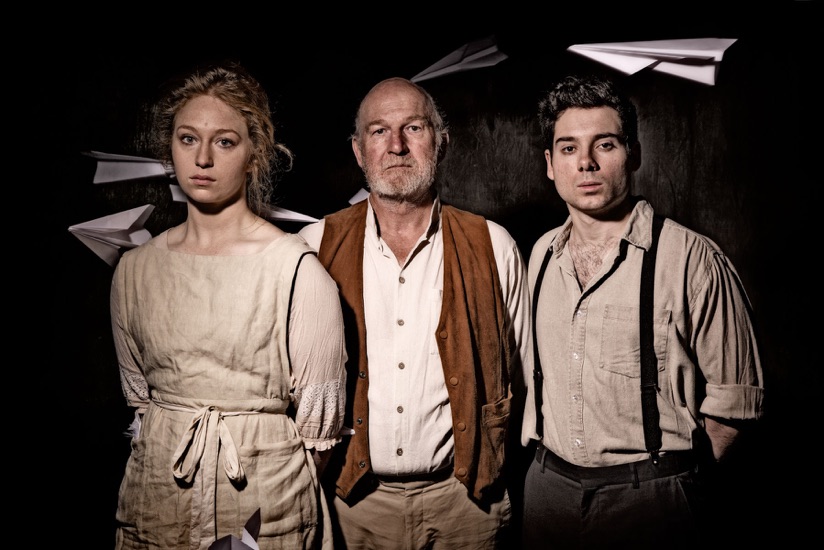7-ONs
wonderful year just got a bit more wonderful. Our Donna won the Griffin Prize 2013, with her play, Jump For Jordan.
Of course not all of us could be there to cheer her on – if we can just nail a
7 in Brisbane and Perth we’ll have the country covered! – but we hear from Our
Vanessa (also on the shortlist for the Prize) that Donna delivered a corker of
a thank-you speech.
"Jump
For Jordan is inspired by a real experience which excited
my abiding interest in themes of migration, displacement, exile, and clashing
cultural expectations. However, I was equally curious about the anxiety and
paranoia that gripped my friend, and how assumptions, internalised racism and
moral panic could eclipse actual events. For this reason, Jump For Jordan
is also set within the main characters’s fluctuating levels of consciousness:
memory, reconstructed family history, paranoid fantasies, and insomnia-induced
conversations with the dead.
The
main character is a would-be archaeologist. But her dream of unearthing
antiquities in the Middle East has been derailed by the disturbance caused by
anxiety and family conflict. In Jump For Jordan, I wanted to explore
dramaturgically this idea of disturbance by embedding it within the form, so I
structured the play as if it was a disturbed archaeological dig site; strata of
occupation collapse in on each other; that is, scenes are constructed from layered
fragments, from non-sequential story shards that intrude upon others and that
span a period of thirty years. There are a hundred story shards in this play -
that’s a lot of plot - but Jump For Jordan is primarily a language-based
play, using associative and dialogic structures to create comedy, dramatic
irony, connective comment between and within the scenes, and to unify the
fragments into a poetic whole. It is also a bi-lingual play written almost
entirely in English, with Mara’s wilful mistranslations causing further
disturbance as the narartive unfolds.
Why
did I write the play like this? Because of my passion for treating form as
content, as important as content, as invested with values and force. When
content is woven into the form of a play, I believe that such plays can support
greater complexity and work viscerally upon an audience.
I
wanted to tell you all that because I want to repeat a remark that David Berthold rmade in his blog this week and say that playwrights are not merely
content providers. I’m paraphrasing Peter Craven now by saying that one can ask
two questions: what can the play do? or, what can I do to the play? I love his
first question - what can the play do? - because it understands that a play is
an open system... working hard, on many levels, with many strategies, in
different ways, in different productions. And to throw my own comment in here
about the adaptation debate, I just want to say that for me, the difference
between an original work, and an adaptation, is terror. Adaptations don’t scare
me. New works do. And I applaud Griffin for supporting me and so many other
playwrights, supporting our ambitions and our lurch into the unknown to come
back with a play born of this place and time. " Donna Abela
p.s. and while we're about it, check out Donna's article in The Guardian Australia .
p.s. and while we're about it, check out Donna's article in The Guardian Australia .

















1 comment:
Thanks for this Donna. I particularly enjoyed reading your comments on the development and structuring of your play.
Your right too about "terror" being a travel companion on an original work. Keeps you sharp I find!
Cheers, thanks and congratulations
Karin Mainwaring
Post a Comment